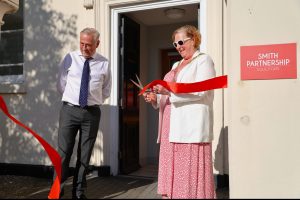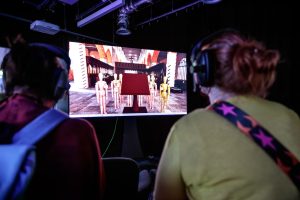Manufacturing Briefs: Lorien; Edward Howell Galvanizers; Black Country Chamber

Lorien turns up the heat on the National Trust with biomass scheme
A STAFFORDSHIRE engineering firm has assisted a National Trust country house to develop a new sustainable heating system.
Lorien Engineering Solutions worked with the charity and Hinton Ampner to replace its ageing oil-fired heating system with a state-of-the-art biomass boiler.
The new system will help the property, based near Alresford, to save approximately 80-90 tonnes of Co2 each year compared to the oil-fired system.
The new system will fuel the house, along with the shop, tea room and two residential properties on the estate.
Lorien Engineering designed and project managed the transition for the National Trust, which included appointing historic buildings architect Ptolemy Dean to hone the desired look of the centralised boiler room, integral fuel stores and new gardener’s workshop and tractor store. The property intends to produce its own wood chip, so a bulk storage facility will be procured on site to allow months of fuel to be stored at any one time.
The project also took into account Hinton Ampner’s extensive gardens, which will be fed via a rainwater harvesting system to complement the property’s existing irrigation system. This meant removing some 100 cubic metres of earth to make way for a 20,000 litre tank which was then encased in concrete to stabilise it below ground.
Lorien project manager Stuart Perry said: “This was an interesting and challenging project which was completed on time and within budget.”
Black Country galvaniser shows its artistic side
A BLACK Country galvanizing company has teamed up with a renowned sculptor to create and protect a series of historic monuments.
Wednesfield-based Edward Howell Galvanizers has worked with sculptor Luke Perry by providing its hot dip galvanizing treatment to a collection of larger-than-life-size sculptures. The sculptures are situated in the Colne Valley Regional Park in Buckinghamshire and are designed as a memento of the area’s historical importance.
Perry said: “Colne Valley Regional Park was established in 1957 but early traces of people in the park date back to around 400,000 BC. The sculptures have been designed to link with various areas in the park, which people can view and learn from.”
Commissioned by Watford Town Council, the sculptures include a diving man, a land girl holding a spade and a bucket to represent World War Two, and a person fishing from a window. Each figure is around 5 metres tall.
“I made the steel flat and hammered it into shape, then welded all of the pieces together,” Perry added.
“Edward Howell Galvanizers provide hot dip galvanizing which covers the steel both inside and out, protecting each and every one against corrosion and the harsh outdoor weather. Once galvanized, I strip back the silver coating using acid which gives the final piece a rustic look.”
Black Country businesses urged to be more transparent on skills needs
BUSINESSES in the Black Country, especially those involved in manufacturing have been urged to make their skills strategies more transparent.
The call has come from the Black Country Chamber of Commerce and follows a skills summit held at aerospace manufacturer Moog, which is based on the i54 site close to Jaguar Land Rover’s new £0.5bn engine plant.
Martin Dudley, managing director of Thomas Dudley and chair of the Black Country Chamber of Commerce Skills Policy Group, said: “We need employers to articulate their needs clearly so that we can find providers who can satisfy those needs or find the means ourselves.”
Firms attending the event had said appropriate skills were needed on every level of their business: senior leadership, mid and first line management and supervision, engineering, project management, even sewing skills were said to be in short supply.
There was also a consensus that education providers were generally not providing young people with the right attitude to work.
“We need a united voice in the Black Country,” added Dudley. “Free training might sound good but if it is at an inappropriate level it draws funding away from where it is needed most.”









